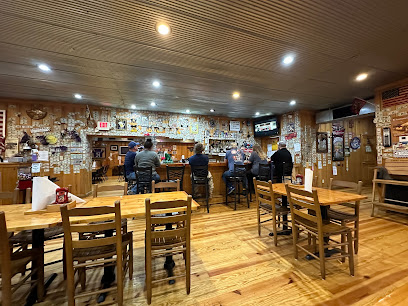
Choctaw National Wildlife Refuge: A Natural Oasis
Discover Alabama's natural beauty at Choctaw National Wildlife Refuge: a haven for birding, fishing, hunting, and wildlife observation along the Tombigbee River.
The Choctaw National Wildlife Refuge, established in 1964, is a 4,218-acre sanctuary along the Tombigbee River near Gilbertown, Alabama. Named after the Choctaw tribe, the refuge provides crucial habitat for migratory waterfowl, especially wood ducks, and protects a diverse ecosystem of bottomland hardwoods, creeks, and sloughs. Visitors can enjoy birding, fishing, hunting, hiking, and wildlife observation in this natural haven.
A brief summary to Choctaw National Wildlife Refuge Admin Building and Visitor Contact Station
- Gilbertown, Alabama, 36908, US
Local tips
- Bring binoculars for optimal birdwatching, especially during the winter waterfowl migration.
- Check the refuge's website or call the office for updated information on hunting seasons and regulations.
- Wear appropriate footwear for hiking, as trails may be muddy or flooded, especially in the spring.
- Bring insect repellent, especially during the warmer months, to protect against mosquitoes and other insects.
- Be aware that much of the refuge is only accessible by boat.
Getting There
-
Driving
The Choctaw National Wildlife Refuge is located approximately 80 miles north of Mobile, Alabama. From Gilbertown, head north on County Road 17 for approximately 5 miles. Turn east onto Wildlife Road; the refuge entrance will be on the right. Watch for refuge directional signs from Highway 84 to the refuge entrance.
Discover more about Choctaw National Wildlife Refuge Admin Building and Visitor Contact Station
Iconic landmarks you can’t miss
"Claiborne" Historical Marker
70.2 km
Explore the Claiborne Historical Marker in Frisco City, Alabama, and uncover the fascinating history of this once-thriving river port.
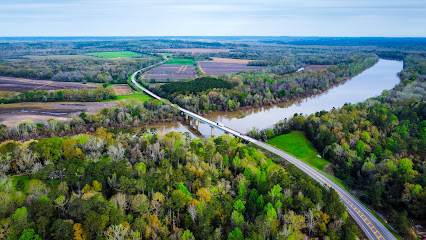
Alabama River
76.1 km
Explore the historic and scenic Alabama River, a vital waterway offering recreation, natural beauty, and a glimpse into the state's rich past.
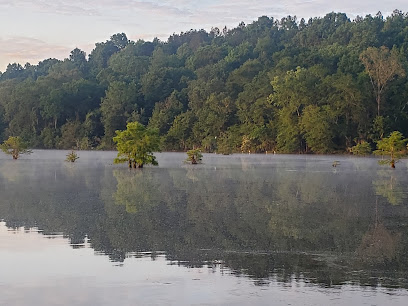
Stuckey's Bridge
79.5 km
Explore Stuckey's Bridge, a mesmerizing historical landmark in Enterprise, Mississippi, rich in tales and scenic beauty, perfect for a serene getaway.
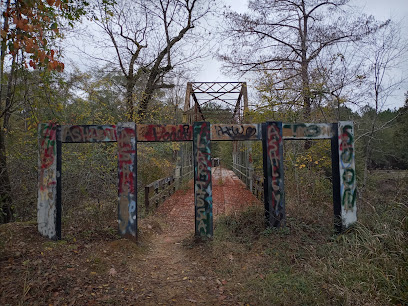
Marengo County History & Archives Museum
81.2 km
Explore the Marengo County History & Archives Museum in Demopolis, Alabama, and uncover the fascinating stories of the region's past.

White Bluff Historical Marker
81.5 km
Uncover the stories of Alabama's past at White Bluff Historical Marker, a significant landmark in Demopolis celebrating local history and culture.
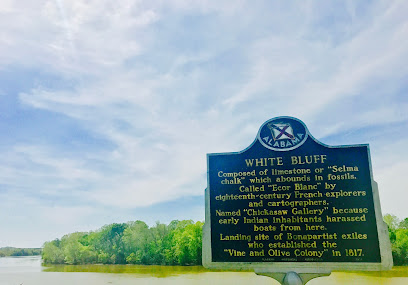
Wilcox Historical Society
84.1 km
Preserving Wilcox County's heritage through education, preservation, and community engagement at the historic Wilcox Female Institute.
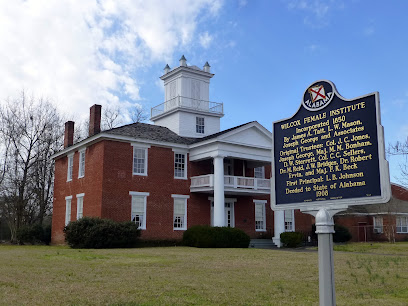
Bottle Creek Indian Mounds Trailhead
95.2 km
Unearth the rich Native American history at Bottle Creek Indian Mounds, a serene landmark in Alabama's beautiful landscape.
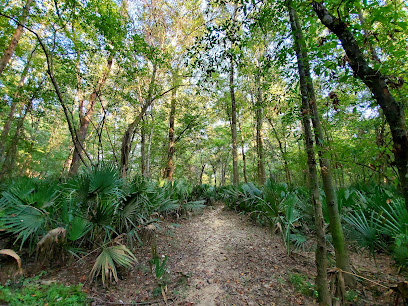
Unmissable attractions to see
Lenoir Landing Park
1.8 km
Escape to the tranquil beauty of Lenoir Landing Park on the Tombigbee River in Alabama, offering primitive camping, fishing, and nature exploration near the Choctaw National Wildlife Refuge.
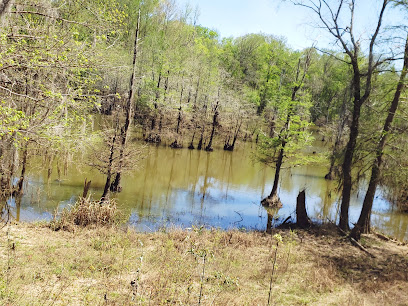
Choctaw NWR Special Opportunity Area
3.8 km
Explore Alabama's natural beauty at Choctaw NWR SOA: a 4,000-acre hunting paradise with limited-quota permits for quality primitive weapon deer hunts.
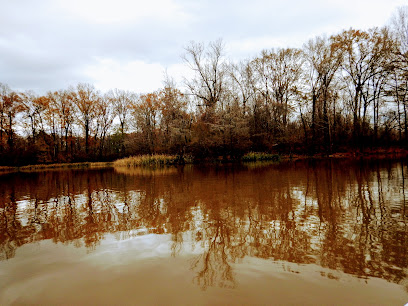
Service Park Campground
10.3 km
Escape to Service Park Campground on Coffeeville Lake for camping, fishing, boating, and outdoor adventures in the heart of Alabama's natural beauty.
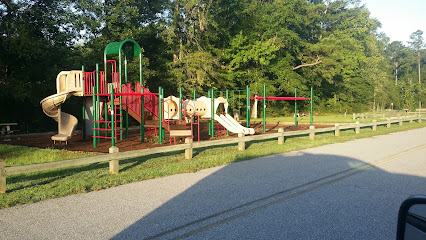
Bladon Springs County Park
10.4 km
Experience the tranquility of Bladon Springs County Park, a historic Alabama spa retreat with mineral springs and scenic beauty.
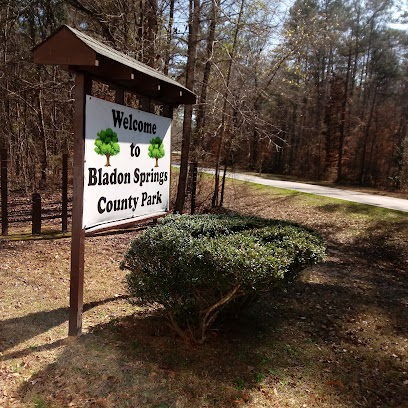
Bladon Springs State Park
11.8 km
Discover historic mineral springs and natural beauty at Bladon Springs State Park, a peaceful retreat in Choctaw County, Alabama.
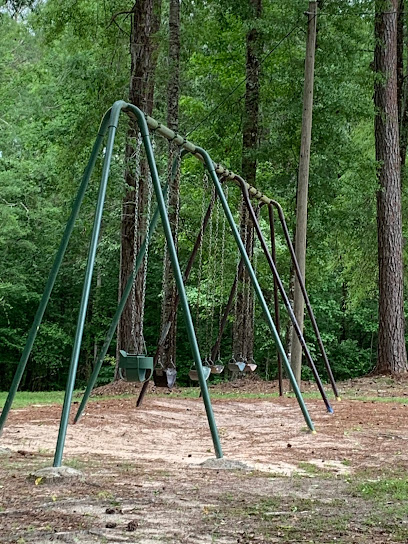
Skinner Park
15.2 km
Discover Toxey's heart at Skinner Park: a vibrant hub offering recreation, history at the Denton and Mattie Mosley log cabin, and community spirit for an authentic Alabama experience.
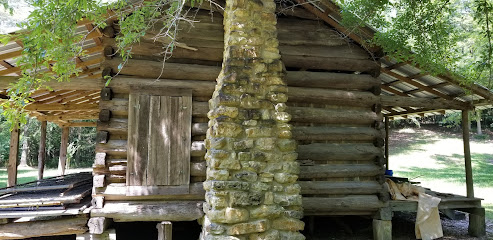
Choctaw County Historical Museum
15.3 km
Discover Choctaw County's history through fascinating artifacts and exhibits at the Historical Museum in Gilbertown, Alabama.
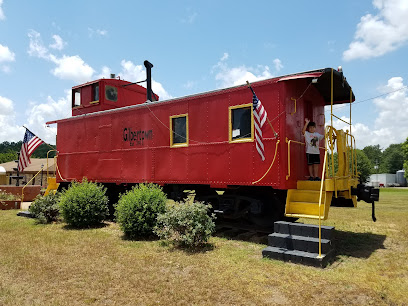
Silas Veterans Park
17.2 km
Explore Silas Veterans Park, a tranquil retreat in Alabama honoring local veterans amidst beautiful nature and serene landscapes.

First Oil Well in Alabama
17.7 km
Discover the birthplace of Alabama's oil industry at the First Oil Well site near Gilbertown, a landmark of state history.
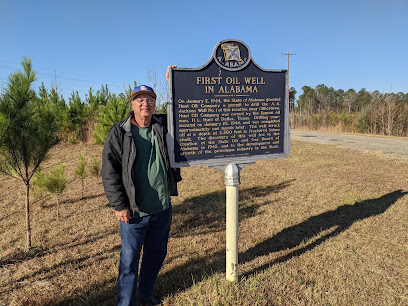
Millry City Park
27.2 km
Discover a peaceful retreat in Millry City Park, a charming destination for relaxation, community, and natural beauty in rural Alabama.
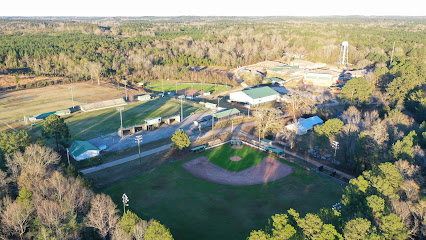
St. Stephens Historical Park
34.0 km
Discover Alabama's territorial roots at St. Stephens Historical Park: history, archaeology, and outdoor adventure on the Tombigbee River.
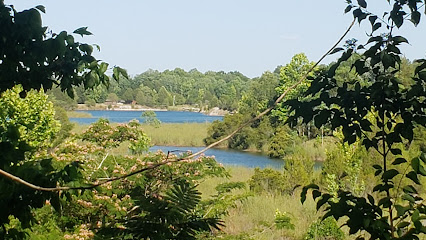
Clarke Co Historical Museum
39.7 km
Discover Southwest Alabama's history at the Clarke County Historical Museum in Grove Hill, featuring exhibits from prehistoric times to pioneer life.
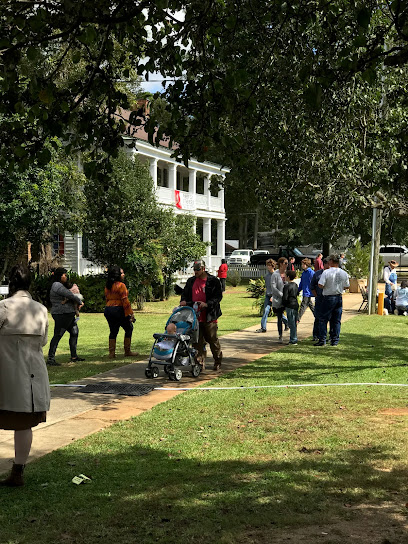
Katie Hearn Oaks
41.1 km
Experience Southern charm at Katie Hearn Oaks in Leroy, AL – the perfect venue for weddings, events, and unforgettable celebrations.
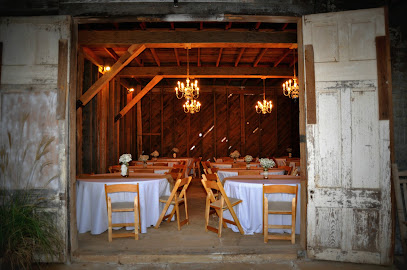
Thomasville City Park
41.1 km
Discover a serene escape in Thomasville City Park, offering green spaces, playgrounds, and sports facilities for relaxation and recreation in the heart of Alabama.
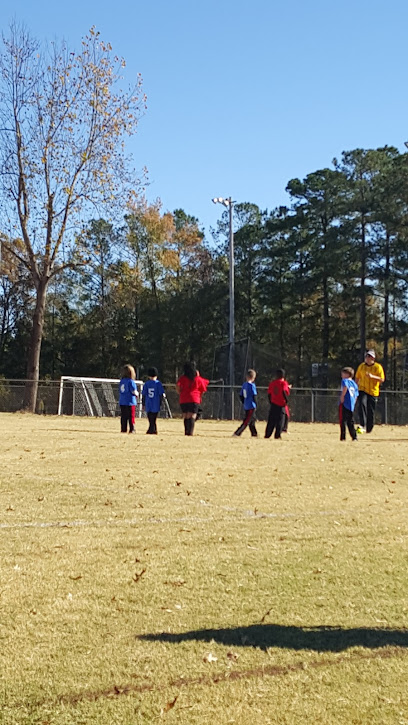
Richardson Farms
42.0 km
Experience the charm of rural Alabama at Richardson Farms, with fresh produce, pick-your-own fun, and seasonal festivals.

Essential places to dine
Tombigbee River
42.9 km
Explore Alabama's Tombigbee River - A Nature Lover's Paradise with Scenic Views and Outdoor Adventures Awaiting You.
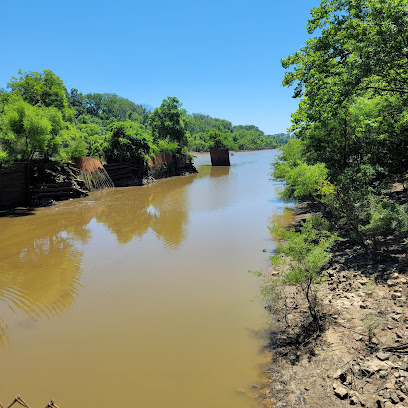
Vikyna Mexican Restaurant
88.9 km
Discover the vibrant flavors of Mexico at Vikyna Mexican Restaurant in Monroeville, Alabama - where every dish tells a delicious story.
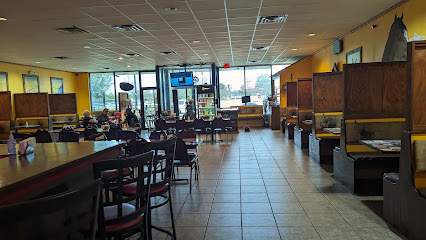
Markets, malls and hidden boutiques
Tom Bigee River Store
2.5 km
Experience Southern hospitality at Tom Bigee River Store, where great food meets friendly service in Toxey, Alabama.
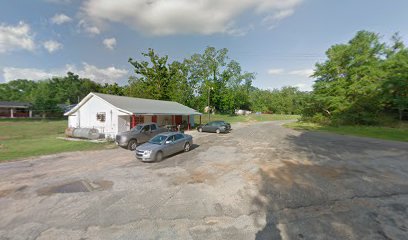
St Stephens Historic Park - Camp store
33.8 km
Explore St. Stephens Historic Park Camp Store for unique gifts and local treasures amidst Alabama's scenic beauty.
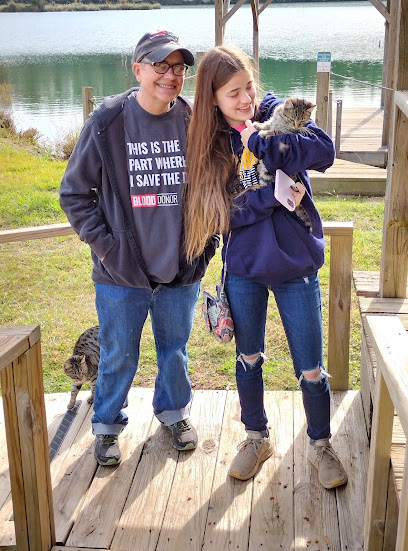
Blissful Lifestyle Boutique
38.8 km
Shop at Blissful Lifestyle Boutique for unique women's fashion and accessories that embody the charm of Grove Hill, Alabama.

The Gift Gallery
39.7 km
Discover unique gifts and local treasures at The Gift Gallery in Grove Hill, Alabama - a must-visit for every tourist seeking memorable souvenirs.

A Little Bird Boutique
40.3 km
Explore unique fashion and gifts at A Little Bird Boutique in Grove Hill, Alabama, your ultimate shopping destination for stylish finds.

The Marketplace
40.8 km
Unearth unique vintage treasures and collectibles at The Marketplace, Thomasville's charming antique store filled with history and character.

AA Fashion Express Press
40.9 km
Explore stylish men's clothing and custom apparel at AA Fashion Express Press in Thomasville, Alabama, where quality meets personalization.
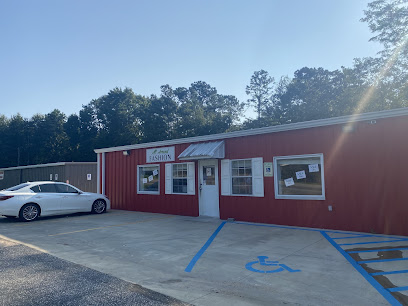
Dixieland Designs AL
41.1 km
Discover the beauty of floral artistry at Dixieland Designs, your premier florist and wedding planning destination in Jackson, Alabama.

Sereniti's Blessings Boutique
42.0 km
Explore Sereniti's Blessings Boutique for stylish women's clothing in Jackson, Alabama, where local charm meets contemporary fashion.

Southern Gypsy Souls
42.0 km
Explore Southern Gypsy Souls in Leroy, Alabama for a unique selection of clothing and accessories that celebrate local fashion and style.

Best watches
42.6 km
Discover an exquisite range of watches and fashion accessories at Best Watches, Hobson's premier jewelry and gift store.

Southern Traditions
42.9 km
Discover unique, locally crafted gifts and experience the charm of Southern hospitality at Southern Traditions in Jackson, Alabama.
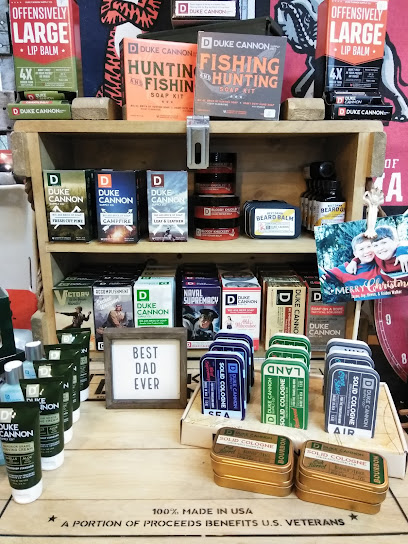
Factory Connection
43.0 km
Discover affordable fashion for the whole family at Factory Connection in Jackson, Alabama, your ultimate clothing destination.

Gifts from Nature
43.3 km
Discover organic delights and handmade treasures at Gifts from Nature in Jackson, Alabama – a shopper's paradise for eco-friendly enthusiasts.
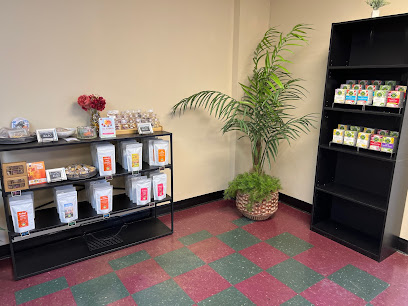
Howell Shoe's N Things
43.3 km
Explore Howell Shoe's N Things in Jackson, AL, for a stylish selection of footwear perfect for all occasions and a unique local shopping experience.

Essential bars & hidden hideouts
Hot Stuff Pizza
12.3 km
Discover Hot Stuff Pizza in Coffeeville, Alabama, where delicious pizza meets a warm, friendly atmosphere, perfect for travelers and locals alike.

The Harbor LLC
12.4 km
Discover the taste of Southern hospitality at The Harbor LLC, Gilbertown's premier dining destination featuring fresh, local flavors.

Foxy Ma's
12.5 km
Experience the heart of Southern hospitality and flavors at Foxy Ma's, a beloved American restaurant in Coffeeville, Alabama.
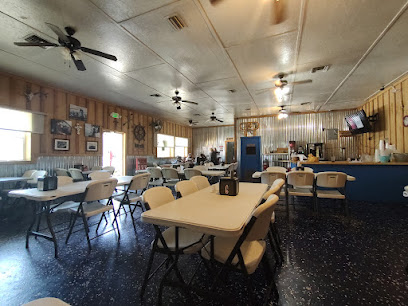
Bimbo's Restaurant
14.6 km
Experience the best pizza in Silas, Alabama, at Bimbo's Restaurant, where every bite is a taste of tradition and flavor.
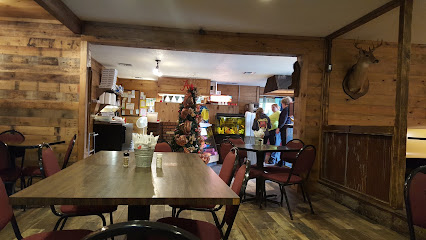
Krispy Krunchy Chicken
20.0 km
Discover the taste of authentic Southern fried chicken at Krispy Krunchy Chicken in Grove Hill, Alabama, where every bite is a crispy delight.

Millry Drive In
25.8 km
Discover Millry Drive In, a quintessential hamburger restaurant where delicious flavors and Southern hospitality come together for an unforgettable dining experience.

Kip's Diner
32.9 km
Experience authentic Southern cuisine at Kip's Diner in Millry, Alabama, where comfort food meets warm hospitality and local charm.
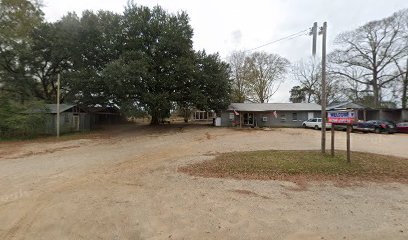
Mi Casa Mexican Restaurant
42.0 km
Experience authentic Mexican cuisine at Mi Casa Mexican Restaurant, where vibrant flavors and a welcoming atmosphere meet in Jackson, Alabama.

Manna Restaurant and General Store
42.7 km
Discover the flavors of Southern cuisine at Manna Restaurant and General Store, a local favorite in Jackson, Alabama, blending dining with a unique shopping experience.
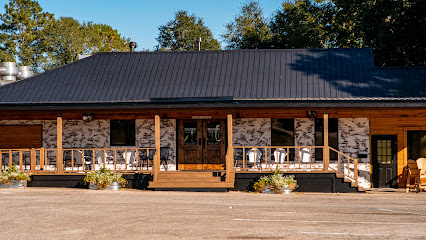
Ed's Drive-In
42.9 km
Discover Ed's Drive-In, where classic American fast food meets a nostalgic atmosphere in the heart of Jackson, Alabama.
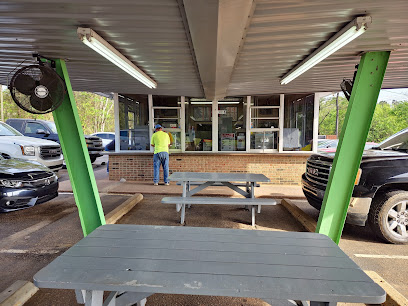
Shuckers Seafood and Oyster Bar
43.7 km
Discover the flavors of the ocean at Shuckers Seafood and Oyster Bar in Jackson, Alabama, where fresh seafood meets a lively atmosphere.
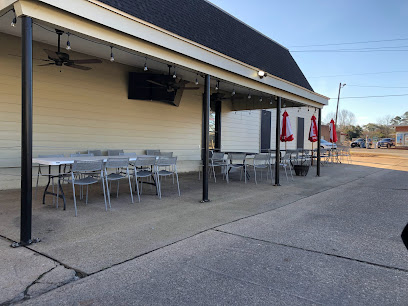
Minnie Mae's
43.9 km
Experience the charm of Minnie Mae's in Jackson, AL, featuring classic burgers and shakes that celebrate American comfort food.
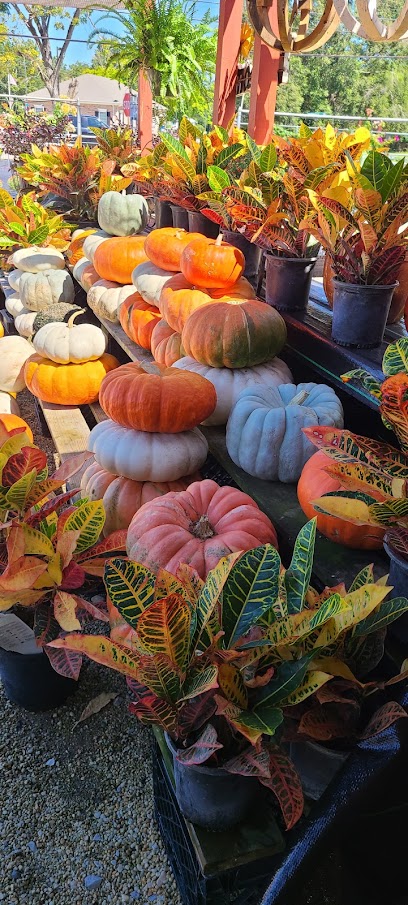
B's Burger House
43.9 km
Discover the delectable tastes of B's Burger House in Jackson, Alabama, where delicious burgers and friendly service await every visitor.

Jailhouse Pizza & BBQ
45.0 km
Experience the best of Southern dining at Jailhouse Pizza & BBQ, where delicious pizza meets smoky BBQ delicacies in a vibrant atmosphere.

Lil' Touch Of Cajun Grill
45.0 km
Experience authentic Cajun cuisine at Lil' Touch Of Cajun Grill in Jackson, AL, where bold flavors and a warm atmosphere await every food lover.
